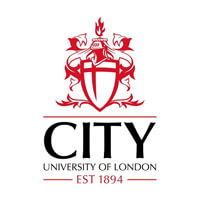fees waived
Speech and Language Therapy, BSc (Hons)
City, University of London, United Kingdom
Subject ranking
UK / CUG 2024 11th
UK / Guardian 2025 38th
UK / QS 2025 39th
Costs
food & rentS$25.1K / year
Entry requirements
Scholarships
Limited quantity
Information
Code
Intakes
Website (External)
Programmes
Information
Duration
2028
City's BSc (Hons) in Speech and Language Therapy is renowned for its excellence in teaching and research, situated within the UK's largest provider of such education. This three-year program qualifies graduates for registration as speech and language therapists, with an optional fourth year leading to a Master in Speech and Language Therapy (MSLT). Ranked first in London and second in the UK for Health Professions (Guardian University Guide 2025), it suits individuals with strong listening, communication, problem-solving, and organisational skills, who are eager to work with diverse populations in team settings.The curriculum covers foundational aspects of human communication, including speech disorders and clinical contexts, supported by placements at the in-house Roberta Williams Speech and Language Therapy Centre. Students engage in core modules across three years, focusing on phonetics, biomedical sciences, psychology, and disorders in children and adults. Assessment includes exams, tests, coursework, and clinical placements, preparing graduates for careers supporting individuals with autism, stammering, or stroke-related speech loss. For those with a prior degree, a two-year MSc fast-track option is available.
In year 1, you’ll explore the foundations of speech and the process of human communication in the social and clinical context. Core modules include: Articulatory Phonetics, Phonology and Speech Development; Biomedical Sciences 1, Anatomy and Physiology; Lifespan Studies; Speech Disorders, Dysfluency and Augmentative and Alternative Communication; Professional studies 1. In year 2, you’ll explore the nature of speech, communication and swallowing in children and adults and attend weekly clinical placements. Core modules include: Applied Phonetics and Phonology; Biomedical Sciences 2, ENT/Neurology/Brain and Behaviour; Developmental Psychology and Research Methods; Language Sciences: Linguistics and Language Development; Dysphagia, Voice, Motor Speech Disorders, Dementia; Professional studies 2. In year 3, you’ll examine the nature of cognition, language and communication disabilities in children and adults and attend weekly clinical placements. Core modules include: Evidence Based Practice and Data Analysis; Acoustic Phonetics, Audiology and Deafness; Acquired and Developmental Language Disorders; Autism Spectrum Disorder, Learning Disability, Child Mental Health, Cerebral Palsy, Cleft Palate; Professional Studies 3; Research Project. Students who choose to study the Master in Speech and Language Therapy will continue to refine and develop their clinical skills and knowledge in areas such as Dysphagia and Disorders of Eating and Drinking, Developmental and Acquired Language Disorders and Cognitive Communication Impairments. They will also have the opportunity to, gain clinical leadership skills and further develop their knowledge of theory and skills in research.

